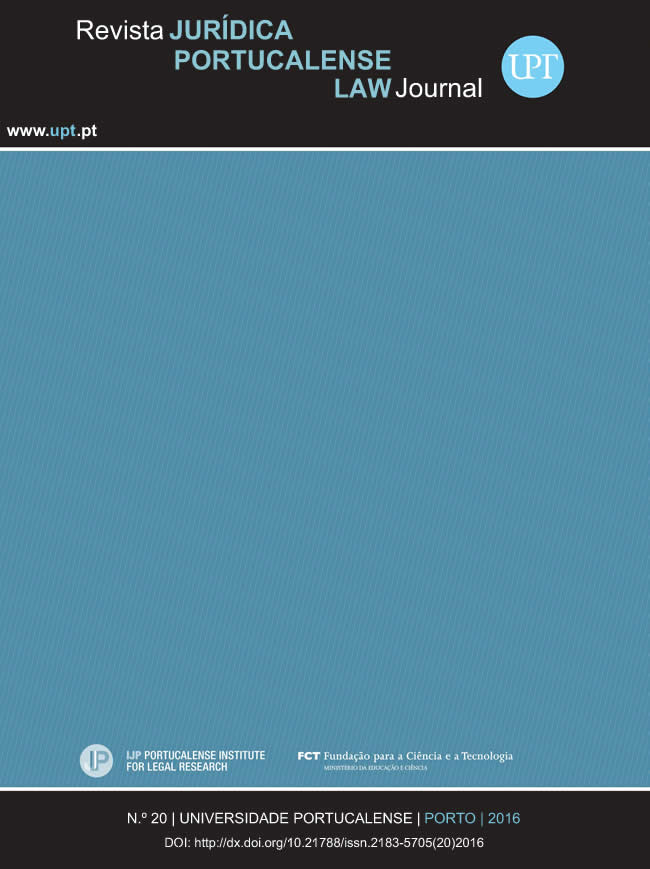Frankenstein society and monster state
Abstract
This work assumes, like Aristotle, that ethics belongs to the individual sphere, not to the political one; and that the role of the State is to seek justice, which means to diminish the iniquities. Ethics does not aim theoretical knowledge, but instead the concept of humanization and the consequent reduction of inequalities. However, nowadays National State does not fulfill its fundamental role of promoting justice and development, behaving as a sort of anti-ethical monster who dehumanizes its people in a vicious cycle of objectifying man and denying him his most basic rights. This paper intends to discuss the aporia in the relationship between ethics and State, in the context of the values crisis, using 18th century Mary Shelley’s Frankenstein and his monster as an allegory.Downloads
Additional Files
Published
2016-12-09
How to Cite
de Carvalho, Érica R. (2016). Frankenstein society and monster state. Revista Jurídica Portucalense , (20), 30–49. Retrieved from https://revistas.rcaap.pt/juridica/article/view/8548
Issue
Section
SCIENTIFIC RESEARCH
License
Authors who published in the journal agree to the following terms:
- The Authors grant the Journal the right of first publication, and other non-exclusive publishing rights, licensed under the Creative Commons Attribution License which allows the sharing of work with recognition of its initial publication in this journal.
- Authors are able to take on additional contracts separately, non-exclusive distribution of the version of the paper published in this journal (ex .: publish in an institutional repository or as a chapter in a book), with an acknowledgement of its initial publication in this journal.
- Authors are permitted and encouraged to post and distribute their work online (eg .: in institutional repositories or on their website) at any point before or during the submission process, as it can lead to productive exchanges, as well as increase the impact and the citation of published work (See The Effect of Open Access).
RJP does not apply submission, publication or any other fees of any nature. Its articles are open access, with the goal of disseminating scientific knowledge and the debate of legal topics in the area of Legal Sciences.






